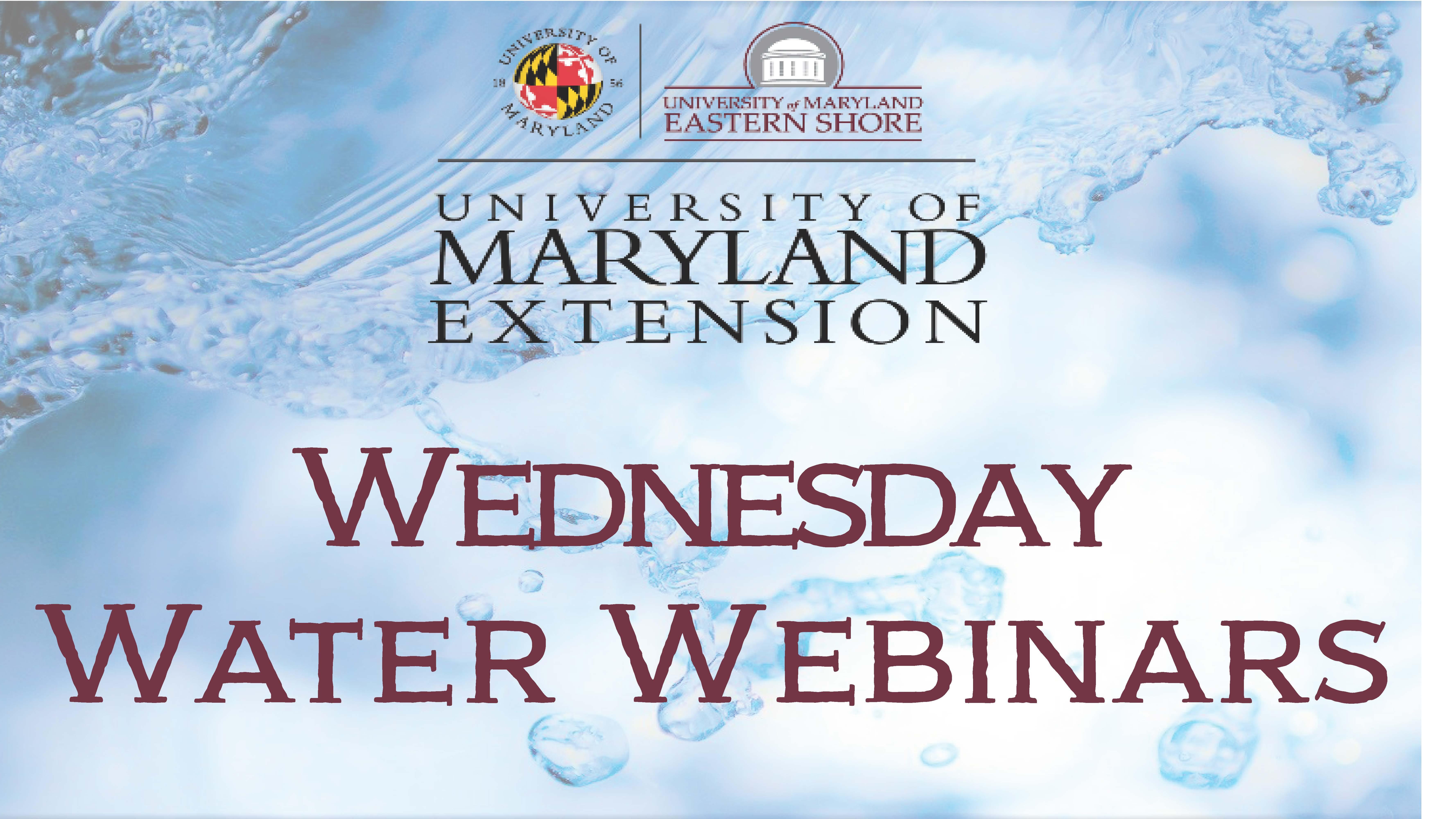University of Maryland Extension will be hosting monthly webinars on various water quality related topics. Join Andrew Lazur, Water Quality Specialist, as he dives into water topics that affect us all. These webinars will take place via Zoom on the dates shown below, allowing time for Q & A at the end.
On scheduled Wednesdays (below) from 12:00- 12:40 PM
Advantages of Upgrading your Septic System – June 18, 2025
Is your septic system old and in need of replacement? Join this webinar to learn more about how advanced treatment units (ATU) can provide benefits to the environment and public health. Also, learn about Maryland’s Bay Restoration Fund grant program to help replace septic tanks with advanced treatment units or best available technology (BAT). The increased treatment and nitrogen reduction and operation of these systems greatly reduces the risks to groundwater and helps to extend the lifespan of a drainfield.
Click here to register.
The Latest on PFAS and How to Protect You and Your Family - July 16, 2025
PFAS is a huge global pollution issue that will be with for many decades or longer. These ‘forever chemicals’ are also everywhere and are causing human health issues and impacting our environment. There are dozens of research studies ongoing to help us know more about the risks of PFAS and also how to reduce our exposure. Tune into this webinar to hear the latest on this contaminant and what you can do.
Click here to register.
Common Issues with Ponds and Management Tips - August 20, 2025
Ponds of any size and type are dynamic aquatic ecosystems. Warmer water temperatures may create additional concern for ponds and water quality. Excessive aquatic plant growth, and low oxygen are a few examples. This webinar will present basic pond management principles and practices to keep ponds healthy.
Click here to register.
Exposure to Microplastics and Reducing Risks - September 17, 2025
Plastics have been around for decades and as they break down into small particles, micro and nano plastics pollution is everywhere. This includes air, rain, surface and groundwater, animals, plants, some of the foods we eat, and even in human body tissue. Tune into this webinar to learn more about how we can reduce our exposure while being better stewards of our environment.
Click here to register.
New to a Septic System – What You Should Know to Protect Your System - October 15, 2025
If you have just bought or moved into a home that has a septic system, there are important things you need to know to help keep the system functioning properly and as long as possible. This webinar will discuss the basic system types and the recommended maintenance practices to follow.
Click here to register.
On a Well? Basics Tips to Ensure Good Water Quality - November 19, 2025
Wells are a significant source of drinking water for Americans. Well water is not regulated as are public water supplies, and therefore the well owner is responsible to test, if necessary, treat the water. This webinar will cover basic well design and types, wellhead protection measures, how to test your well and review basic water filtration.
Click here to register.
Salinization of our Waters – What Can We Do - December 17, 2025
The use of deicing salts and rising sea level is increasingly making our surface and ground water more saline. This issue has major implications on aquatic ecosystems and the numerous species that depend on them. In addition, increasing salinity can increase corrosion with subsequent infrastructure damage and releasing toxic metals in our drinking water. This webinar will discuss the impact of this issue, ways to reduce impacts and protect drinking water quality.
Click here to register.
